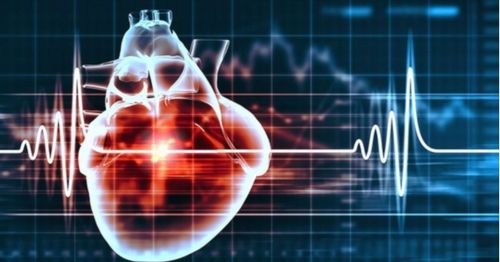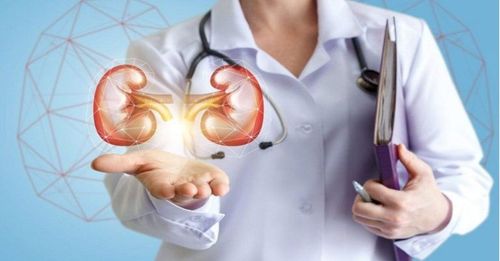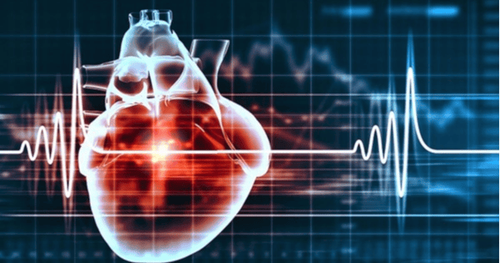This is an automatically translated article.
Replacing an artificial heart valve is an increasingly popular procedure for patients with damaged heart valves. After replacing the prosthetic heart valve, the patient needs to be periodically examined and used drugs as prescribed by the doctor.
1. Strictly follow all doctor's orders
All patients with mechanical heart valve replacement require lifelong anticoagulation. In Vietnam, the type of anticoagulant used is sintrom - which belongs to the group of vitamin K antagonists. Specifically, if you do not take the medicine or take an insufficient dose, the patient may develop a blood clot at the mechanical valve. Blood clots can enter the circulatory system, causing embolism in many places in the body such as cerebral vascular occlusion causing cerebral infarction, occlusion at the mechanical valve causing the valve to not work, which can cause sudden death.
On the contrary, if you take an overdose of anticoagulants, the patient may have bleeding in the body such as bleeding in the stomach, brain, muscles, skin, kidneys,...
In addition, patients using anticoagulants Routine blood tests should be performed to check the INR value. In patients with a mechanical aortic valve, the ideal INR is between 2 and 3. In patients with a mechanical mitral valve, the ideal INR is between 2.5 and 3.5.
2. First visit after artificial heart valve replacement surgery
After 3 - 4 weeks after surgery to replace the artificial heart valve, the patient needs to go for the first check-up. Re-examination is to assess prosthetic heart valve function, evaluate the effectiveness of anticoagulants, detect signs of infection, detect signs of hemolysis, and detect other signs (myocardial infarction, confusion, etc.) conduction disturbance). In addition, the follow-up examination after heart valve replacement also helps doctors assess the patient's general and neuropsychiatric condition when wearing an artificial heart valve.
During clinical examination, the doctor will pay attention to the sound of the artificial valve. If the mechanical valve rattle is absent, there may be a risk of thrombosis forming on the mechanical annulus. If before valve replacement the patient has infective endocarditis, the doctor should pay attention to the systemic signs including: pale skin, history of prolonged fever,...
Tests to be performed include: Electrocardiogram, straight chest X-ray, Doppler echocardiogram, complete blood count, platelet count, blood chemistry (creatinine, urea, glucose, electrolytes, LDH enzyme), blood coagulation (prothrombin ratio, INR) ).

Sau thay van tim nhân tạo người bệnh cần thực hiện một số xét nghiệm
3. Monitoring the patient's health after replacing the artificial heart valve
3.1 Monitoring patients without complications For patients with prosthetic heart valves in stable clinical condition, periodic examination helps to monitor the effectiveness of anticoagulants, vitamin K antagonists, drug interactions with other drugs and the patient's general condition. Patients should be tested for INR at least once a month and performed as soon as there are abnormal clinical signs or whenever the dose of anticoagulants is changed.
At the same time, it is necessary to disseminate knowledge to patients to preserve the artificial heart valve, to avoid infection of the artificial valve (prevention of infective endocarditis). Once a year, patients need to repeat tests such as electrocardiogram, cardiopulmonary scan, hematology (hemoglobin, hematocrit, LDH), echocardiogram.
3.2 Monitoring patients with complications Patients with left ventricular systolic dysfunction after valve replacement surgery: Need medical treatment against heart failure. Medical treatment continued despite improvement of left ventricular systolic function; Any patient with artificial heart valve replacement who does not improve or shows signs of cardiac dysfunction after surgery should have a thorough clinical examination, complete exploratory tests, especially echocardiography. or transesophageal echocardiography, cardiac catheterization, angiography) to determine the cause; Perform prosthetic valve replacement surgery when: There is a serious dysfunction of the prosthetic valve (valve rupture, endocarditis, bacterial infection of the prosthetic valve, thrombus formation that causes the prosthetic valve to jam, heavy bleeding due to drug use). anticoagulation should replace mechanical valves with biological valves), aortic stenosis after prosthetic valve replacement but no clinical improvement, patients with persistent heart failure despite aggressive medical treatment ( valve does not guarantee hemodynamics for the patient).
4. Notes when taking care of patients after prosthetic heart valve replacement
4.1 Diet The patient's diet greatly affects the effectiveness of anticoagulants. Many foods contain vitamin K, which can interfere with the effects of anticoagulants. Therefore, patients should limit their intake of foods rich in vitamin K such as soybeans, peas, green beans, broccoli, cabbage, cauliflower, gna, mustard, soybean oil, avocado, bamboo shoots. parsley, kale, green tea, radish, green onion, parsley and lettuce. Patients need to pay attention to eat a relatively equal amount of vegetables in their daily diet, avoiding much change in meals.
Chế độ ăn uống sau thay van tim nhân tạo
Within 6-8 weeks after surgery, the patient should not carry or pull anything heavier than 50kg to avoid putting pressure on the healing incision, giving the sternum enough time to recover.
Patients usually take about 4-6 weeks for their health to return to normal, the sternum is completely healed and return to low-intensity work (office workers). For workers with higher intensity, they need to rest for at least 6 weeks before returning to work. Laparoscopic cases can recover faster. In some cases, the patient is not suitable to return to the old job and needs to find a new job with less stress and fatigue.
4.3 Sexual activity Sex is an energy-intensive activity, so it takes time to recover after 1-3 weeks from the time the patient is discharged from the hospital. There are two factors affecting the sex life of patients after prosthetic heart valve replacement: physical health and mental health. The patient can begin sexual activity when ready, but should avoid strong pressure on the chest and avoid excessive exertion.
Patients can exercise to enhance physical fitness and sexual ability. In addition, there are certain medications that can affect sexual function. If this happens, the patient should see a doctor to change the dose or type of medication (avoid stopping any medication without the doctor's approval).
4.4 Other notes Families need to cooperate to help the sick person recover both physically and psychologically; Patients who are taking anticoagulants are not allowed to arbitrarily take other drugs without the permission of the doctor; Weight monitoring after prosthetic heart valve replacement. For about 3 weeks after surgery, patients usually lose a bit of weight. But if you gain more than 2.5kg, you need to be careful because you may have edema; Quit a negative lifestyle: Smoking, drinking beer, alcohol, stress, eating salty foods, being sedentary,... When hospitalized for other reasons, the patient needs to inform the doctor that he or she is taking anticoagulants. blood and are carrying an artificial heart valve ; Women who are wearing prosthetic heart valves, if they want to have children, need to notify their doctor immediately for specific instructions; Take the patient to the emergency room immediately if there are abnormal symptoms such as: Chest discomfort (angina, heavy pressure, chest pressure); shortness of breath; cold sweats, loss of balance, dizziness, nausea; numbness and weakness of the face, arms or legs, or half of the body; sudden loss of consciousness or lethargy, not understanding questions; sudden disturbances in vision in one or both eyes; severe headache for no reason; fever, severe non-exertional shortness of breath; abnormally rapid weight gain, ankle edema,... All patients after prosthetic heart valve replacement should be examined periodically and take full medication as prescribed by the doctor. If there are abnormal health signs, it is necessary to take the patient to the doctor immediately for timely treatment.
Please dial HOTLINE for more information or register for an appointment HERE. Download MyVinmec app to make appointments faster and to manage your bookings easily.













